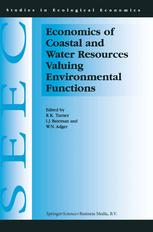

Most ebook files are in PDF format, so you can easily read them using various software such as Foxit Reader or directly on the Google Chrome browser.
Some ebook files are released by publishers in other formats such as .awz, .mobi, .epub, .fb2, etc. You may need to install specific software to read these formats on mobile/PC, such as Calibre.
Please read the tutorial at this link: https://ebookbell.com/faq
We offer FREE conversion to the popular formats you request; however, this may take some time. Therefore, right after payment, please email us, and we will try to provide the service as quickly as possible.
For some exceptional file formats or broken links (if any), please refrain from opening any disputes. Instead, email us first, and we will try to assist within a maximum of 6 hours.
EbookBell Team

4.1
60 reviewsMost of the chapters in this volume are authored by staff or associates of the Centre for Social and Economic Research on the Global Environment (CSERGE). CSERGE is a research centre sponsored by the UK Economic and Social Research Council (ESRC), which specialises in interdisciplinary work focussed on environmental management issues. Weare grateful for the long term support that we have received from the ESRC. We would also like to acknowledge the efforts of Ann Dixon and SHin Pearce in the preparation of this volume. vii INTRODUCTION CHAPTER 1. ECOLOGICAL ECONOMICS AND COASTAL ZONE ECOSYSTEMS' VALUES: AN OVERVIEW. Turner, R. K. , Bateman, I. J. and Adger, W. N. 1. 1 Coastal zone pressure and sustainable management challenges Given the continued intensification of the process of globalisation - involving population growth, population density changes via urbanisation, industrial development, increased trade and capital flows, liberalisation of transnational corporation activity and lifestyle and attitudinal changes - coastal zones and their hydrologically linked catchment areas have come under heavy environmental pressure. The scale and extent of socio-economic activities have profound implications for the now coevolving natural and human systems and their complex interrelationships (Turner, Perrings and Folke, 1997). The consequences of this process of change manifest themselves across a range of spatial and temporal scales. Indeed the juxtaposition of different spatial, functional and temporal scales that is inherent in the catchment-coastal ecosystems-seas/oceans continuum poses particularly difficult challenges for both science and resource management/governance.